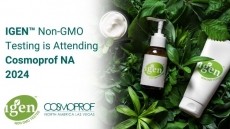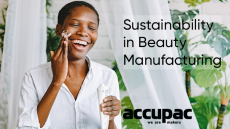Don’t Panic! PCPC brands consumer product study ‘needlessly scary’

The study was published in the journal Environmental Health Perspectives, stating that current testing and labeling requirements do not prevent the use of hormone disruptors or asthma-associated chemicals in products or provide enough information for consumers to consistently avoid them.
However, PCPC has questioned the study, saying the mere presence of certain chemicals in products with potential harm needlessly scares consumers about products formulated with ingredients that have a wealth of scientific data to support their safety.
No need for alarm
"The results of this study are not new or surprising and should not alarm consumers. The mere presence of those chemicals identified does not mean they are harmful," said Linda Loretz, senior scientist and director of safety and regulatory toxicology for the Council.
"Cosmetics and personal care products companies formulate their products to ensure that the amounts of ingredients used are within safety limits that have been established by scientific and regulatory bodies around the world."
The SSI study analyzed a number of household products, testing for ‘suspect chemicals’ singling out certain products as potentially dangerous, and calling for clearer labeling.
One of the products singled out as containing high concentration of hazardous chemicals was sunscreen.
Sunscreen scrutiny
Sunscreens were cited as endocrine disruptors based on the results of screening assays, which PCPC argues have no proven relevance for humans.
The study cites high levels in products without acknowledging that these ingredients are the FDA-approved, normal levels for use in sun protection products.
“Despite the body of scientific evidence and the determination by regulatory authorities and professional medical societies that sunscreens play a critical role in protecting consumers from UV radiation and premature aging, the authors still assert that sunscreens are harmful to humans,” says the PCPC.
“The ingredients examined in the Silent Spring study are important to the safety and functionality of personal care products.”















